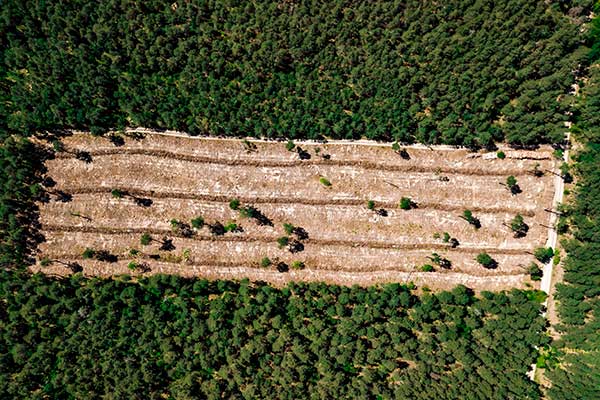
Forests
Forests cover 30.6 percent of global land area and play an essential role in underpinning society’s basic needs. Healthy forest ecosystems support biodiversity, regulate local and global climate, provide immense cultural, spiritual, and economic value, and sustain communities with resources and food. 1.6 billion people depend directly on forests for their livelihoods.
Forests are nature’s best climate change solution. When forests win, the climate wins.
Responsible management of forest landscapes is a critical strategy in addressing climate change and meeting sustainable development goals. Forests are both a greenhouse gas source and a sink: deforestation and land use change contribute to 23 percent of anthropogenic emissions, but forests net sink equivalent to 29 percent of global greenhouse gas emissions. Pressures from industry, agriculture, logging, wildfires and urbanization continue to drive high deforestation rates.
Forest Facts
- Protecting 30 percent of all land and sustainably managing another 20 percent by 2030 is necessary to maintain a livable planet.
- Less than 15 percent of forests globally are intact, and 50 percent has been cleared or degraded.
- Conservation and restoration of forests, grasslands and wetlands can deliver a third of emission reductions.
- 1.5 billion hectares of forest landscapes are suitable for mosaic restoration, and another 500 million hectares can be used for wide-scale restoration.

Reducing deforestation, conserving existing forests, and restoring degraded land are all critical steps toward limiting warming to 1.5ºC. Effective forest landscape restoration respects the myriad needs of local stakeholders, addresses the economic drivers of deforestation and degradation, and tailors interventions to local conditions, and enhances landscapes for long term resilience.
The Carbon Institute’s Work
The Carbon Institute’s work to build capacity for forest landscape restoration supports the following initiatives:
- Nationally-determined contributions under the Paris Agreement
- Bonn Challenge to restore 150 million hectares of forests
- New York City Declaration of Forests to clean up the industries that often cause forest loss
- UNFCCC REDD+, a global effort to make standing forests more valuable for their important role in storing carbon and providing adaptation benefits
- Where and when appropriate, voluntary, community-led respectful, and non-colonial carbon markets

